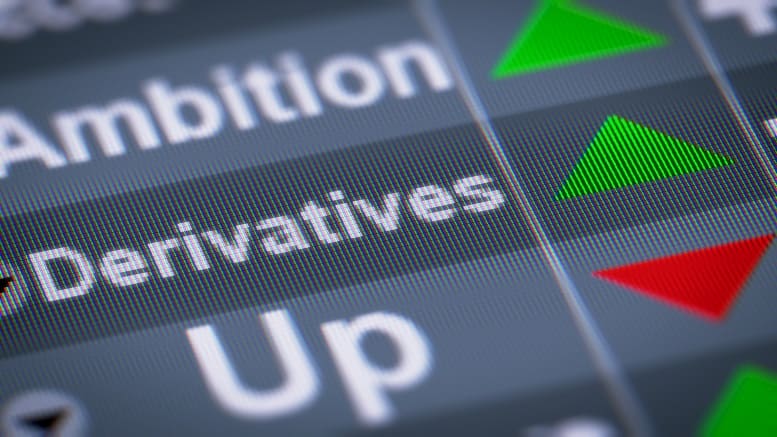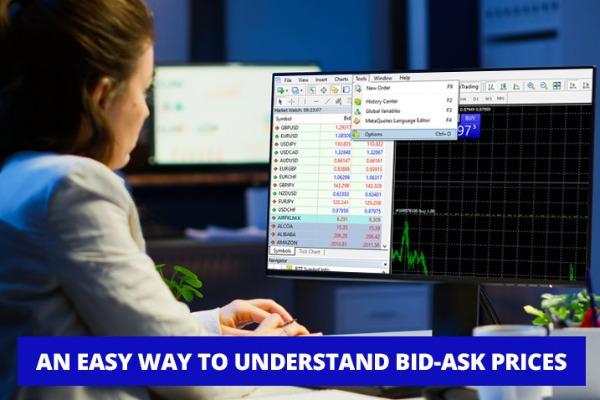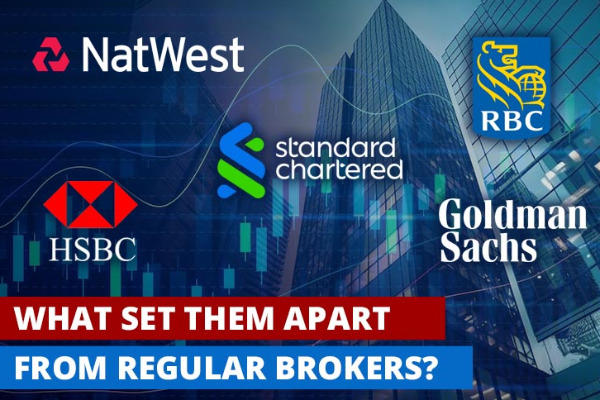Derivatives are considered risky investments, but they can present an opportunity to earn huge profits. Find out how to make money from derivative trading in this article.
There are many ways to make money with trading. Most people would invest their money in popular tradable assets like currencies, stocks, precious metals, shares, or digital assets. Another option is to trade derivatives – a financial instrument that derives its value from something else. Traders can use derivatives for various purposes such as to minimize their risks and increase potential profits.

However, derivatives are complex investments and can be pretty risky for average traders. Thus, make sure to take the time to learn what they are, how they are traded on the market, as well as the risks involved before you start trading derivative.
Contents
Introduction to Derivative Trading
As the name suggests, a derivative is a financial instrument whose value is derived from an underlying asset, a group of assets, or a benchmark. Such assets include stocks, currencies, indices, bonds, exchange rates, commodities, or interest rates. Derivative is a contract that binds a buyer and a seller to take a certain action regarding the underlying asset within or over a specific period of time. It is also worth noting that unlike securities, the buyer and seller of derivatives are not obliged to own the actual underlying asset.
The derivative can be traded over-the-counter (OTC), which means investors may purchase them through a broker network, or on exchanges like the Chicago Mercantile Exchange (CME). Exchange-traded derivatives are formal and standardized, but OTC-based derivatives are less so. In other words, you may be able to earn a bigger profit from an OTC derivative, but you'll get exposed to higher counterparty risk.
Investors can use derivatives for various purposes, such as:
- To speculate on an asset's price. An investor can bet on the movements of an asset's value and take advantage of it. If the market price of the underlying asset rises above the investor's speculation when the contract is still active, the investor can earn returns, since the asset can be purchased at a lower fixed price according to the contract. Meanwhile, if the market price of the underlying asset drops below the expectation, the investor will lose money, since they must purchase the asset at a higher price.
- To hedge a position. Investors can manage risks by purchasing derivatives against their active positions and protect their funds from massive price downturns.
- To add leverage to their holdings. Most derivatives use margin and leverage, so investors can enter the market with relatively less money. This can be quite helpful to use money more effectively and spread them across different investments to optimize returns instead of just putting funds in one investment and risking it all. However, this also means that they can lose more quickly if they make wrong predictions.
Types of Derivatives
Today, there are many kinds of derivatives with various uses available on the market. There are derivatives for commodities like precious metals and agricultural products, and even derivatives based on weather data, like the amount of rain or sunny days within a specific area. The derivatives market continues to grow and expand over time, offering products for almost every need and risk tolerance.
Generally speaking, derivatives can be divided into two major categories: lock derivatives and option derivatives. Lock products like futures, forwards, and swaps bind both parties involved to take action based on the agreed-upon terms over the predetermined period of the contract. Thus, both parties are obliged to buy or sell the underlying asset at a specific price over a certain period. Meanwhile, options offer both parties the right to buy or sell the underlying asset at a specific price on or before the contract's expired.
Now, let's examine the most common types of derivative instruments below.
Futures
A futures contract or futures is an agreement between two parties to perform a certain transaction at an agreed-upon price on a specific date in the future. Futures can be used to hedge or speculate on the price of a certain underlying asset. Both parties involved are obligated to fulfill the contract by buying or selling the underlying asset by the time it expires. So, no matter what happens in the market, the contract must be executed on the agreed terms.
As an example, let's say that a futures contract represents 500 barrels of crude oil. If the price of oil rises from $60 to $80 per barrel, then this means that the buyer will make a profit of $10,000, where ($80-$60) x 500 barrels = $10,000. Meanwhile, the seller must suffer a loss of $10,000.
Forwards
Unlike futures contracts, forward contracts are traded over-the-counter. In other words, they are not standardized and they don't follow the rules of the exchanges. Keep in mind that this type of derivative presents higher counterparty risks. If one of the parties becomes insolvent, then there's nothing else to do and the other party may lose all of their resources. Forward contracts are used by banks or other large financial institutions because they may have higher risk tolerance.
It is important to understand that even though forward contracts are considered risky, they actually offer a lot more customization that could increase profit. When the contract is created, the buyer and the seller are free to customize the terms, size, and settlement process.
Swaps
Swap is another common type of derivative that can be used to benefit both parties involved. There are two types of swaps, namely interest rate swaps and currency swaps. Many companies, banks, and other institutions often use swaps to reduce risks. They can use such contracts to turn fixed-rate debt into floating-rate debt or vice versa. Swaps are quite effective in stabilizing cash flows, assets, and liabilities as well.
Let's say a US company borrows money and pays interest in US dollars but then sells its products in France and gets paid in euros. If the dollar depreciates in value against the euro, then the company loses money. Alternatively, the company could search for a French company that borrows in euros and gets paid in US dollars. They might agree to swap a certain amount of dollars and euros at an agreed rate for a set period of time.
See Also:
Options
As mentioned before, options are a bit different from other common derivatives as they give no obligation, but rights to execute the contract. This means that if the buyer does not speculate correctly, they can refuse to do the transaction and the seller will automatically be compensated for the premium amount, which is paid by the buyer. On the other hand, a seller does not have such right to refuse so they must perform the transaction.
When it comes to timing your right to buy or sell, you can refer to the style of the option. American options allow holders to use the contract right at any time before or on the day of expiration. On the other hand, European options can only be executed on the day the contract expires.
The Benefits and Risks
For many investors, derivatives are a great alternative to increase potential profits and minimize risks. However, it is important to understand that derivatives are not free of risks. The following are some benefits and risks of derivatives that you should know:
The Benefits
- Hedging: Derivatives can be used to hedge the price of an open position and minimize the risks of trading.
- Leverage: You can open a bigger position size than the actual amount of capital that you have in your account.
- Lock-in price: You can speculate on the price of an asset and take advantage of the fixed price.
The Risks
- Volume Issues: Not all assets have popular derivatives, so it might be hard to find the opposite party to sign the contract.
- Leverage: This can be both good and bad for traders. If you use high leverage and it turns out that your prediction is wrong, you can end up with a devastating result.
- Counterparty Risk: This can occur in any OTC derivative. There's a chance that the opposite party is a scammer or suddenly bail out from the contract.
- High Complexity: Derivatives are not suitable for beginners because they are highly complex and risky. If you are unfamiliar with derivatives and how they work, you might end up losing a lot of money.
- Market Risk: If the price of the underlying asset changes, one of the parties must win and the other must lose. There's always a chance to lose money, so it is considered pretty risky.
How to Make Money from Derivatives
If you want to start making profits from derivatives, you can simply buy derivative products using a standard investment account. Options and futures are two of the most popular derivative instruments to use on the market and they are relatively easy to find as well.
The most important thing is to focus on your trading strategy. Remember that when it comes to derivatives, there's always one winner and one loser. So, build a well-thought strategy to make the right speculation and generate profit.
It's a great idea to trade on a derivative exchange as they are licensed and considered more reliable. They also typically offer a wider range of derivatives and lower fees, making them suitable for both small and large traders. However, it's worth pointing out that technically, there are no exchanges that offer only derivatives as there are other profitable trading instruments on the market. This doesn't matter though because you need them to diversify your portfolio anyway.
There are many exchanges to choose from, such as the New York Mercantile Exchange, the London Metal Exchange, The St. Petersburg International Mercantile Exchange, and the Malaysian Exchange. These platforms provide access to commodities as well as derivative instruments, particularly futures and options. Some exchanges also allow you to trade crypto, like Binance, OKX, Bybit, BTCEX, and Bitget.
Alternatively, you can also try CFD (Contract for Difference) trading. It is a type of financial derivative which implies that the seller must pay the buyer the difference in the settlement price of the underlying asset between the opening and the closing time. Compared to other derivatives, CFDs are considered pretty simple because traders just have to worry about the speculation. In other words, the asset itself doesn't matter, the price does.
Most brokers offer CFDs so they are highly accessible. The requirements for CFD trading are also relatively minimal – traders might need to register before opening an account and make a small deposit before trading. The risks are not much different from other derivatives, so you just have to make sure that your analysis is sound.

 Dedicated FREE FOREX VPS
Dedicated FREE FOREX VPS Free FOREX Virtual Private Server
Free FOREX Virtual Private Server MT4 Demo Contest, Get $500
MT4 Demo Contest, Get $500 Sign Up for an Account, Claim 60% Deposit Bonus
Sign Up for an Account, Claim 60% Deposit Bonus Free MT4/MT5 VPS 2024
Free MT4/MT5 VPS 2024 Send E-mail and Get Free Merchandise
Send E-mail and Get Free Merchandise $1K Refer a Friend Bonus for Pepperstone Pro clients
$1K Refer a Friend Bonus for Pepperstone Pro clients Maximize Your Earnings with 100% Deposit bonus
Maximize Your Earnings with 100% Deposit bonus Trade to Win, $5,000 Monthly Demo Contest
Trade to Win, $5,000 Monthly Demo Contest Claim 30% + 15% Deposit Bonus from LiteFinance
Claim 30% + 15% Deposit Bonus from LiteFinance






